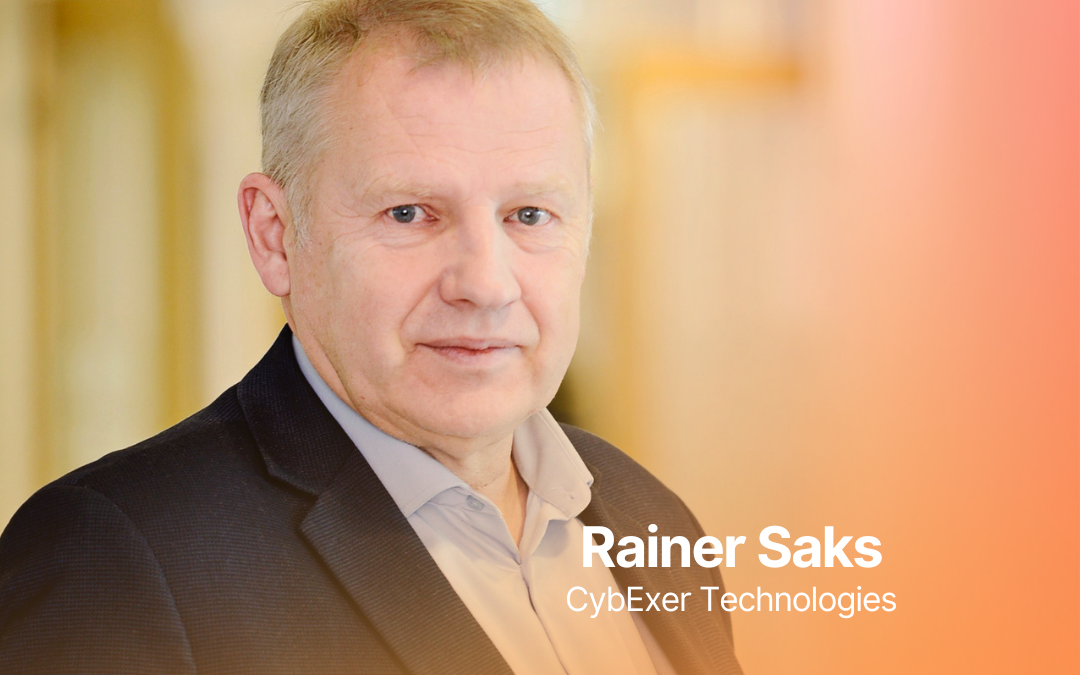One important topic among many others at the EBAN Tallinn Congress is the rise of cyber and defence industry startups. This topic has never been as hot in the startup world as it is now, given the current tense situation with the war in Ukraine and Estonia’s own geographical location and history with the neighboring country. One vertical of the EBAN Congress is to showcase how Estonia is navigating the insecurities and how technology helps to drive geopolitical issues – particularly how innovative solutions and technological innovation accelerate investments, help to maintain peace, and prevent malice.
We will look into Estonian history and current need to be fast, innovative and regardless our small territory, our strong fight for democracy, peace and independence. AI, technology innovation and open and free economy stand behind this need. One of EBAN Congress keynote speakers, Rainer Saks, is one of the most known war analytics in Estonia and gives us an insight into the topic.
Why did Russia decided to invade Ukraine, and why have they not achieved their military objectives?
Firstly, influenced by events from previous decades, Western countries, especially the USA, were considered politically weak – not economically or militarily, but politically. Consequently, observing the behavior of Western countries since the beginning of the Ukraine war in 2014, it was believed that Ukraine would not receive military or economic aid, but merely face moral statements and symbolic sanctions. Most importantly, Russian leaders were convinced that the Ukrainian people would not resist. All these assessments proved wrong.
Currently, it is clear that Russia’s substantial losses in the war prevent it from achieving full control over Ukraine. Russia’s losses are so significant that it currently cannot initiate war on any other front. While Russia could defend itself if attacked, mainly due to its nuclear capabilities, even if Russia were to gain control over Ukraine within the next year, it would still lack the strength to start a war against EU or NATO member states for a long time. Thus, there is no immediate threat of direct military aggression from Russia in Europe soon.
What is it we fear then?
Since Russia still perceives itself in direct military opposition to NATO member states, it primarily attempts to influence and deter them through various hybrid attacks. In hybrid warfare, we see a combination of various covert influence tools, with information pressure or manipulation always being most crucial. Russia typically develops separate tactics towards each major target, generally involving information attacks combined with cyber attacks, corruption, organized crime, economic influence, and migration pressure. European countries are primarily destabilized internally or by influencing their interests elsewhere in the world.
How is Europe’s safety protected?
To ensure Europe’s security, it is first necessary to provide Ukraine with adequate military and economic support. Also – European countries must reinvest in their defense capabilities and restore the credibility of military defense. The current war in Ukraine has demonstrated that Russian weapons are clearly inferior to Western technology.
Europe must also break Russia’s political and informational influence activities in Europe. Europe must find effective solutions to stabilize its southern border too. Europe continues to possess one of the world’s largest economic and intellectual potentials. If no major mistakes are made in securing its security, Europe will remain the world’s most stable region economically and socially. Successfully implementing new technologies also significantly enhances deterrence in the security field, reducing a potential enemy’s opportunities to destabilize the situation.
A few thoughts on the rise of new defence technologies
The war in Ukraine has triggered a significant boom in the development of novel technologies. Ukraine must provide an effective countermeasure to an adversary who has a superiority in traditional armament. The entire population of Ukraine has been mobilized for national defense, applying all their knowledge to protect the country. As a result, a series of new technologies are emerging, which will become major projects in future defense industries. The most visible is the explosive development of various unmanned platforms and their integration with human activity.
Cyberattack defense activities hold a very special place. Ukraine has managed to repel Russian attacks, and the country’s digital infrastructure has continued to operate uninterrupted. This may seem like a small miracle, but it is underpinned by the collaboration, developments, and innovative solutions of hundreds of IT companies, along with constant learning, training, and exercises. Major changes are occurring in the fields of electronic warfare and communication technologies. All these changes are rapidly reaching the everyday technology usage sector.
What is it that awaits us regaring all this?
In Estonia, a number of technology companies have formed over two years, mostly motivated by the desire to simply help Ukraine. Many such aid projects have evolved into serious technology development cooperation projects. The reconstruction of Ukraine lies ahead, which will further expand the application of new technologies in rebuilding Ukraine’s infrastructure. In fact, we are talking about building new infrastructure in Ukraine in the most modern way. Ukraine has the opportunity to abandon the legacy of previous eras. Estonian companies have proven that they can cope in challenging conditions in Ukraine, and technology investments in Estonia will thereby receive a significant boost in the future.
- Save the date: May 21, 10:45 is Rainer Saks keynote on the main stage at EBAN Congress Tallinn. Click the Congress agenda for details.
- Rainer Saks is a seasoned leader currently serving as a Member of the Management Board at Cybexer Technologies. His career in public service includes significant roles such as Secretary General of the Ministry of Foreign Affairs and Director General of the Estonian Information Board. He holds a Diploma in Humanities (History) from the University of Tartu. Fluent in English and Russian, Rainer brings a comprehensive perspective on national and international security issues.
